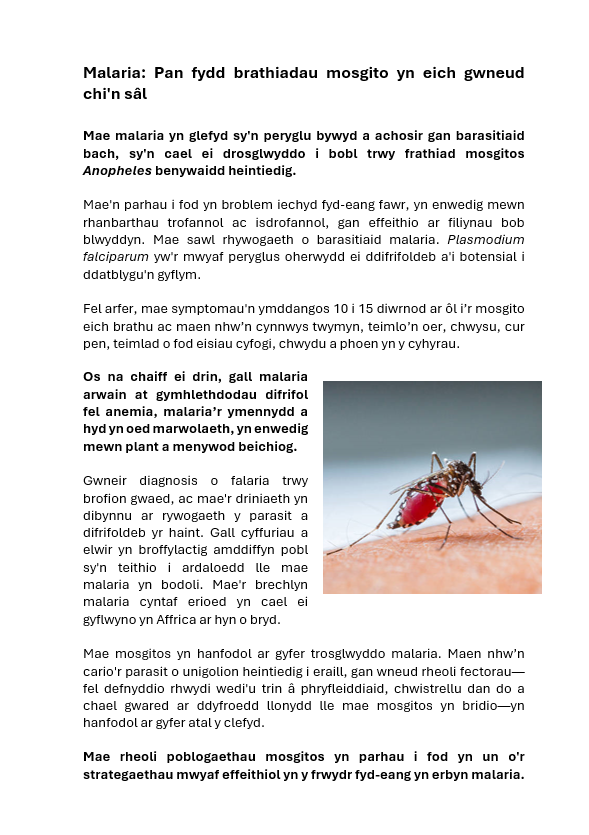
Horror Show – Malaria
When mosquito bites make you sick
Malaria is a life-threatening disease caused by tiny parasites, transmitted to humans through the bite of infected female Anopheles mosquitoes.
The display featured a cage with 100-200 live mosquitoes as centre piece (which were kept alive throughout the event by feeding on sugar water), alongside examples on how to protect oneself against insect bites, using mosquito repellent, anti-mosquito bracelets and insect bite relief gel. The entrance to the booth was covered in a large mosquito net that visitors had to walk through to access the display.
Posters showed some background about malaria, the life cycle of the parasite and a close-up view of a mosquito’s head. One additional poster illustrated the role of different types of vectors in transmitting infectious diseases, covering mosquitoes, tsetse flies, fleas, ticks, freshwater snails and other species.
Materials to download, in English and Welsh:
➡️ Story Time: Malaria and Artemisinin
Malaria remains a major global health issue, especially in tropical and subtropical regions, affecting millions annually. There are several species of malaria parasites, with Plasmodium falciparum being the most dangerous due to its severity and potential for rapid progression.
Symptoms typically appear 10–15 days after the mosquito bite and include high fever, chills, sweating, headache, nausea, vomiting and muscle pain.
If untreated, malaria can lead to serious complications like anaemia, cerebral malaria and even death, especially in children and pregnant women.
Malaria is diagnosed through blood tests, and treatment depends on the parasite species and the severity of the infection. So-called prophylactic drugs can protect people travelling to areas where malaria exist. The first ever malaria vaccine is currently being rolled out in Africa.
Mosquitoes are critical for malaria transmission. They carry the parasite from infected individuals to others, making vector control—like using insecticide-treated nets, indoor spraying and eliminating standing waters where mosquitoes breed—essential for prevention.
Controlling mosquito populations remains one of the most effective strategies in the global fight against malaria.
➡️ Horror Show
Return to the Horror Show starting page
➡️ Pop-Up Shop 2025
Go to the main event page of our 2025 Pop-Up Shop










